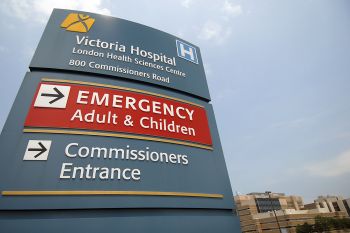Article – I’ve spent the past week reviewing over 300 pages of financial records, court documents, and internal correspondence related to what may become one of the largest healthcare fraud cases in Canadian history. What began as a tip from a hospital employee has unfolded into a sprawling investigation at London Health Sciences Centre (LHSC), where officials have uncovered an alleged $60 million financial fraud scheme spanning several years.
The hospital, one of Ontario’s largest healthcare networks serving over 1.5 million patients annually, revealed the suspected fraud last week after an internal financial review flagged unusual payment patterns. According to hospital executives, the scheme appears to have operated through sophisticated manipulation of procurement systems and vendor relationships.
“This is a devastating breach of trust,” said Dr. Jackie Schleifer Taylor, LHSC’s President and CEO, during our interview at the hospital’s administrative offices. “Our focus remains on ensuring this doesn’t impact patient care while cooperating fully with authorities to hold those responsible accountable.”
Court records show the hospital has filed a civil lawsuit against former financial controller Nathan Gilliland and three corporate entities allegedly involved in the scheme. The statement of claim, which I examined at the London courthouse yesterday, alleges Gilliland orchestrated a complex web of phantom vendors and fraudulent invoices that diverted millions into private accounts between 2018 and 2024.
The alleged fraud represents approximately 2.5% of the hospital’s annual $2.4 billion budget. Internal documents suggest the scheme went undetected due to what auditors describe as “deliberately fragmented” approval processes that exploited gaps in financial oversight.
“Healthcare fraud often succeeds because hospitals operate with immense transaction volumes across decentralized departments,” explained Kristen Hines, a healthcare fraud investigator I consulted with at KPMG. “Sophisticated perpetrators identify control weaknesses in these complex systems, particularly where technology transitions create temporary blindspots.”
The Ontario Provincial Police’s Anti-Rackets Branch has opened a criminal investigation but declined to comment on specific details when I contacted their office yesterday. Sources familiar with the investigation indicated that authorities are examining both domestic and international financial transfers connected to the case.
For London’s healthcare community, the revelations have prompted concerns about potential impacts on healthcare delivery. Hospital officials maintain that despite the financial loss, patient services remain unaffected while they work to strengthen financial controls.
“We’ve already implemented enhanced verification protocols for all vendor payments exceeding $10,000,” said Maria Pattison, newly appointed interim financial director at LHSC. “Additionally, we’ve engaged forensic accountants to conduct a comprehensive review of our financial governance structure.”
The fraud’s discovery comes amid increasing financial pressures on Canada’s healthcare system. According to Statistics Canada data, healthcare spending reached a record $344 billion in 2023, with hospitals continuously seeking efficiencies while maintaining service quality.
The hospital has secured a court order freezing certain assets connected to the defendants, including property in London and Toronto. Court filings reveal investigators traced approximately $12 million to real estate investments and luxury vehicle purchases, while significant amounts were reportedly transferred to offshore accounts.
This case highlights vulnerable oversight points within healthcare procurement systems. Public records indicate LHSC had recently transitioned to a new financial management platform, creating what one insider described as “temporary blind spots in reconciliation processes” that allegedly enabled the scheme to flourish.
“Healthcare institutions face unique challenges in fraud prevention,” noted Caroline Peters from the Canadian Healthcare Anti-Fraud Association during our phone interview. “The complexity of medical billing, supply chain management, and service delivery creates numerous exploitation opportunities that require specialized monitoring systems.”
The Ontario Ministry of Health has launched a broader review of financial controls across provincial healthcare institutions. Minister Sylvia Jones stated in a press release that the ministry is “deeply concerned” and will examine whether additional oversight mechanisms are needed throughout the healthcare network.
For LHSC employees, the revelations have been jarring. “We dedicate our careers to helping patients,” said Michael Trent, a respiratory therapist I spoke with outside the hospital. “To think someone would divert resources from healthcare for personal gain is incomprehensible to those of us on the frontlines.”
Legal experts note that healthcare fraud prosecutions typically result in significant penalties. Under the Criminal Code of Canada, fraud over $5,000 carries a maximum penalty of 14 years imprisonment, while civil proceedings often seek full financial recovery plus damages.
The hospital expects to recover some portion of the missing funds through insurance claims filed under their fidelity coverage policy. Officials confirmed they maintain fraud protection insurance but acknowledged recovery will likely be partial and prolonged.
As this investigation continues, the case underscores the critical importance of financial controls in healthcare institutions where public funds and patient welfare hang in the balance. For London’s flagship hospital, rebuilding financial safeguards—and public trust—now becomes as important as the daily work of healing.






